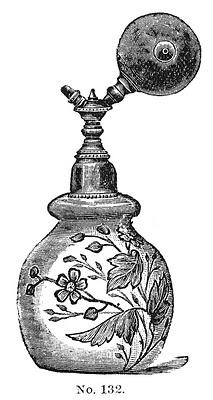Those who mark Valentine’s Day may well have been making careful plans to impress that significant other these past few days. Classy restaurant—check. Romantic atmosphere—check. Best suit or little black dress—check.
But perhaps you haven’t given quite as much attention to how you will smell. Or perhaps you’re planning to offer perfume as a Valentine gift. If so, read on. There is much you need to know in advance.
Arcane Aromas
Applying perfume to the body probably emerged as a means of disguising the build-up of odor on clothing, which in times past was often worn for weeks or months at a time. Because ingredients were expensive, perfumes were associated with high social status.
There are numerous references to people using perfume in ancient scripts including the Old Testament and the writings of the Roman natural historian Pliny the Elder. The oldest known perfume factory, discovered 12 years ago near the Cypriot town of Pyrgos, dates back about 4000 years.


